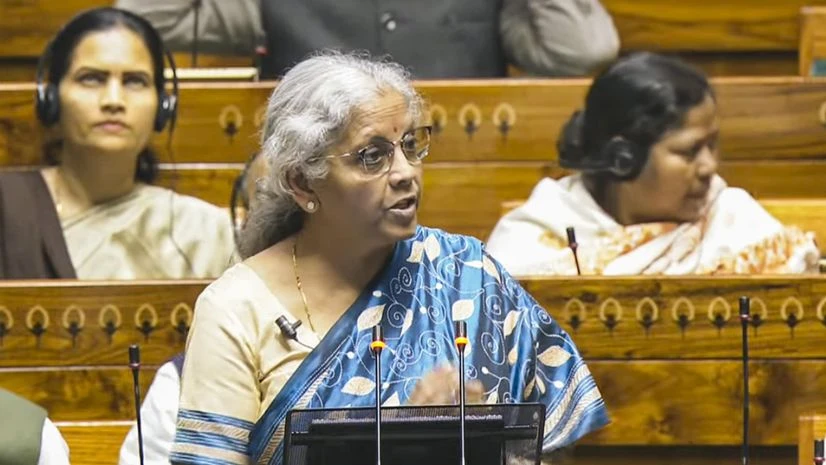Accusing the UPA government of mismanaging the price situation after taking charge from the Vajpayee government in 2004, Finance Minister Nirmala Sitharaman on Saturday mocked the grand old party, saying 'gur ko gobar karna inki maastaree hai'.
Replying to a short-duration discussion on the 'White Paper on the Indian Economy' in the Rajya Sabha, Sitharaman said inflation in the last year of Prime Minister Atal Bihari Vajpayee-led NDA government was below 4 per cent.
"Through their ill-targeted, reckless fiscal policy, ill-targeted subsidies and wasteful expenditure, all done for political gains, inflation went high during the UPA rule," she said.
The minister informed that between 2004-14 under the UPA, the average annual inflation was 8.2 per cent.
In AICC's Session in Jaipur, she said, former prime minister Manmohan Singh admitted that handling inflation was a shortcoming of the UPA government.
Also Read
"Gur ko gobar karna inki (Congress) maastaree hai (Congress has a mastery of ruining something that has been accomplished)," she said.
The minister outlined the steps taken by the Modi government after 2014 to manage inflation in the country.
In the last nine years of the Modi government, retail inflation has been mostly around 5 per cent, and it has never crossed 8 per cent.
"And that Congress is lecturing us now on how to manage inflation," Sitharaman noted.
She further said the Modi-led government toiled for 10 years to bring the economy back on track, taking India from the 'Fragile Five' to the fifth largest economy in the world. India is soon going to become the world's third-largest economy.
The minister said the UPA regime was marked by delays in the implementation of projects.
On the contrary, in the Modi government, the Prime Minister personally monitors programmes and projects and their progress through the PRAGATI portal by holding video conferences with officers even at the district level.
Up to the 43rd edition of PRAGATI, 348 pending projects worth Rs 17.36 lakh crores have been reviewed, their progress is happening, and they are coming to a conclusion.
"This kind of effort never happened earlier during the UPA era," Sitharaman said.
Giving reasons for coming out with the White Paper now, Sitharaman said a similar exercise earlier would have impacted the confidence of institutions, investors, and the people.
As an elected government, she said it is imperative to inform the public and Parliament about the true picture of the economy during the UPA regime and the efforts taken by the Modi government to revive the economy.
In an apparent jibe at the erstwhile National Advisory Council headed by Sonia Gandhi, the finance minister said India needs a clean and accountable governance and not governance through an extra-constitutional body.
Sitharaman said the economy that the NDA government inherited was like a "cloth on a thorny bush" that was full of malpractices, which is reflected in the White Paper. The entire world was using the term ‘Fragile Five' for the Indian economy.
"If this was the condition of the economy, which the government led by Prime Minister Narendra Modi inherited in 2014, did we sit on it? No, we straightway got into action. We carefully extricated that cloth by removing it from every thorn without damaging it. It required a very delicate handling," she said.
The finance minister said now the Indian economy is in the top five and will soon be among the top three.
"As we are bringing the White Paper, it signifies our success in elevating the economy to a particular standard. This achievement fills us with the assurance to proclaim that in the forthcoming years, as echoed by Prime Minister Modi - In my 3rd term surely the economy will reach 3rd rank." The Congress fears people who could overshadow the 'first family', she said, citing names of great leaders like B R Ambedkar, Syama Prasad Mookerjee, and Karpoori Thakur.
In her reply, she highlighted various measures taken by the Modi government to restore the economy back on track. She also said the unemployment rate for graduates declined from 17.3 per cent in 2017 to 13.4 per cent in 2023.

)
